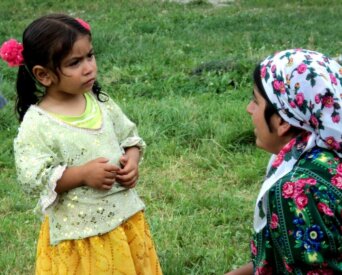- About
- Topics
- Picks
- Audio
- Story
- In-Depth
- Opinion
- News
- Donate
- Signup for our newsletterOur Editors' Best Picks.Send
Read, Debate: Engage.
| topic: | Child rights |
|---|---|
| located: | Bosnia and Herzegovina, Serbia |
| editor: | Katarina Panić |
A family from the Bosnian town of Doboj had forced a thirteen years old daughter to arranged marriage last year. Her father Alija Aljić, 51, sold her to Mehmed Bosak, 47. Mehmed bought the
girl to marry his son Ismet Bosak, 19. The Republika Srpska Prosecutors Office indicted both fathers with child trafficking, while the son was accused of sex with a minor. The Banja Luka District Court last month acquitted them all, allegedly due to lack of evidence and due to the circumstances that exclude guilt.
"This court has practically legalised antiziganism, a specific form of racism", Bosnian Roma Women Network "Uspjeh" stated. "The verdict has also encouraged violence against children and child abuse. The law prohibits having sex with children under the age of 14 and getting married with children under 18, exceptionally 16.
And the judge who is the interpreter of the law said these are not the crimes if the children are Roma", Nedžad Jusić from the Tuzla-based Euro-Rom Association told local media.
Back to the circumstances that exclude guilt, defence attorneys insisted there were no reasons for trial at all – there only was an oversized view of the customs of one ethnic community that differ from the traditions of other majority ethnic groups.
"Roma population has clear rules based on customary law that is several thousand years old. With them, an 18-year-old girl is too old to marry. This is part of their tradition, which can in no way be a qualification of the crime as human trafficking", one of the lawyers Vladimir Kovačević claimed.
They also referred to a similar case in neighbouring Serbia with the same outcome – customary law rooted in the Roma community defeated the legal framework of the state. "Horror… The court is cementing the stigma of Roma. You know, if you kill someone, you can invoke the tradition of your tribe, maybe they'll set you free… And mainstream media are quite silent…",
Sarajevo-based children's rights activist wrote on her Facebook.
Both Serbian and Bosnian courts determined it was about an unavoidable type of legal fallacy which could not have been known to the Roma since in their community actions from the indictment are allowed. Meanwhile, another similar case is under the investigation in Bosnia. The newspaper headline reads: "We didn't kidnap her. We paid for her regularly". One might ask does the ignorance of the law really excuse no one.
Image by Rúben Gál

